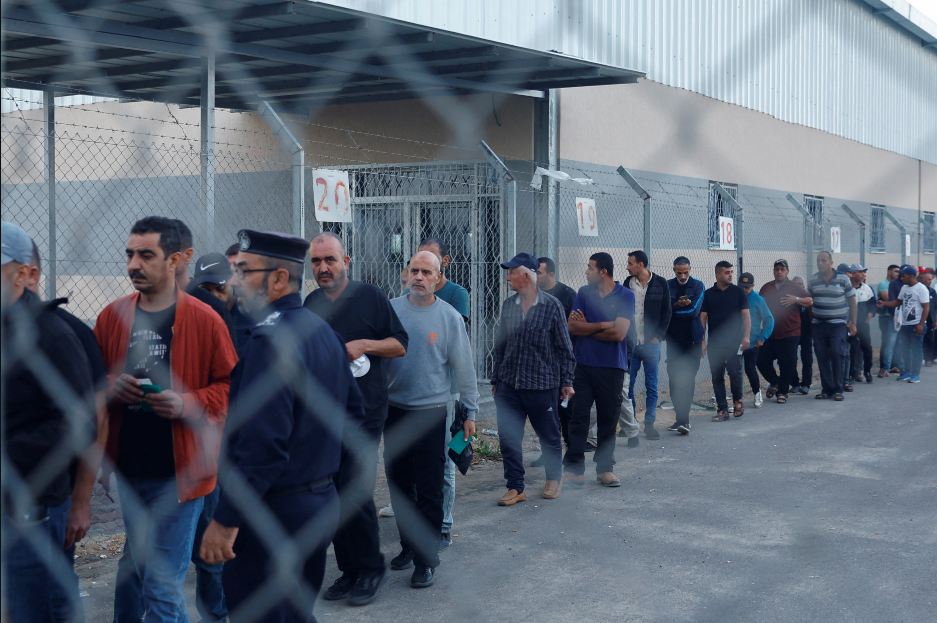Israel reopens Gaza crossings, lets Palestinians back to work after two weeks
Gaza (Reuters) – Israel reopened crossing points with Gaza on Thursday, allowing thousands of Palestinian workers to get to their jobs in Israel and the West Bank, after nearly two weeks of closure prompted by violent protests along the border.
Around 18,000 Gazans have permits from Israeli authorities to work outside the blockaded enclave, providing an injection of cash amounting to some $2 million a day to the impoverished territory’s economy.
The move comes amid stepped-up international efforts by Egypt and the United Nations to defuse tensions and prevent a new round of armed conflict in the enclave.
For around two weeks, protestors throwing stones and explosive devices have faced off against Israeli troops who have responded with live fire, killing at least one man and wounding dozens more.
Protests on Wednesday were less intense, and so was the Israeli response. A Palestinian official familiar with mediation efforts told Reuters the development came “upon the request of mediators to de-escalate tensions”.
Desperate to go back to their jobs, workers began to flock to the Palestinian side of the crossing soon after Israel made the announcement late on Wednesday.
“We want to go to work and earn a living for our children because the situation was too bad for us the past two weeks,” said Khaled Zurub, 57, who works in construction in Israel.
Cogat, the Israeli Defence Ministry agency that coordinates with the Palestinians, said security assessments would determine whether the border remained open.
Hazem Qassem, a spokesman for the armed Islamist Hamas group that rules Gaza and opposes peace deals with Israel, said Israel was constantly violating Gazans’ fundamental right to freedom of movement with repeated border closures and the blockade of Gaza.
Israel blocks many goods from entering Gaza with Egyptian backing, citing security concerns, and also reserves the right to restrict exports.
According to IMF figures, per capita income in Gaza is only a quarter of that of Palestinians in the Israeli-occupied West Bank. The World Bank says unemployment is nearly 50%.

